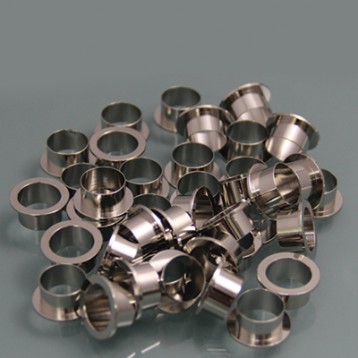In the world of modern manufacturing and engineering, automatic turning parts play an integral role in ensuring high-quality, precise, and efficient production processes. These components are the backbone of industries like automotive, aerospace, electronics, medical devices, and many more. They are manufactured using advanced automatic turning processes, enabling the creation of intricate designs, tight tolerances, and consistent production standards.
What Are Automatic Turning Parts?
Automatic turning parts are mechanical components produced through the automatic turning process, a method that uses CNC (Computer Numerical Control) lathes or automatic lathes to shape raw materials into desired forms. This process involves the rotation of the workpiece while cutting tools remove excess material, producing highly detailed parts with exceptional precision.
The defining feature of automatic turning is its ability to operate with minimal human intervention. These machines are designed for high-speed, high-accuracy production, making them ideal for manufacturing small, complex parts in large volumes.
Features of Automatic Turning Parts
- High Precision and Accuracy
Automatic turning machines deliver superior precision, achieving tolerances as tight as ±0.01mm. This level of accuracy is critical for industries requiring components that must fit perfectly, such as medical implants or aerospace connectors. - Complex Geometries
With advanced tooling and programming capabilities, automatic turning processes can produce intricate shapes and designs, including threads, grooves, and undercuts, which are challenging to achieve with conventional machining methods. - Material Versatility
Automatic turning parts can be made from a wide variety of materials, including:- Metals: Stainless steel, aluminum, brass, copper, titanium, and alloys.
- Plastics: PEEK, ABS, Nylon, and other engineering-grade polymers.
- Exotic Materials: High-performance materials like Inconel and Monel for demanding environments.
- Cost Efficiency
The automation of the turning process reduces labor costs while increasing production speed. This efficiency translates to reduced manufacturing expenses, particularly for high-volume orders.
Applications of Automatic Turning Parts
Automatic turning parts are used in a multitude of industries, each with its unique set of requirements:
- Automotive Industry
- Engine components, fuel injectors, and precision gears.
- Parts used in braking systems, steering mechanisms, and suspension systems.
- Aerospace Industry
- High-strength connectors, fasteners, and critical assembly components.
- Custom parts for avionics and navigation systems.
- Medical Sector
- Surgical instruments, dental implants, and orthopedic screws.
- Components for diagnostic equipment and prosthetics.
- Electronics Industry
- Precision connectors, housings, and heat sinks.
- Small parts for mobile devices, computers, and consumer electronics.
- Industrial Machinery
- Bearings, bushings, and custom shafts.
- Specialized components for automation systems and robotic equipment.
Benefits of Using Automatic Turning Parts
- Consistency and Quality Control
The automated nature of the turning process ensures every part meets strict quality standards, resulting in consistent dimensions and flawless finishes. - Scalability for Large Production Runs
Automatic turning machines can handle high-volume production without compromising precision, making them ideal for industries requiring mass production. - Reduced Waste
By precisely cutting material and optimizing machining strategies, the process minimizes waste, making it more sustainable and cost-effective. - Faster Turnaround Times
The efficiency of automatic turning allows manufacturers to meet tight deadlines, ensuring quick delivery of parts.
Choosing the Right Manufacturer for Automatic Turning Parts
When selecting a manufacturer for automatic turning parts, it’s important to consider the following factors:
- Expertise and Experience
Look for a company with a proven track record in producing automatic turning parts for your industry. Their experience ensures they can handle complex designs and challenging materials. - Advanced Machinery
The quality of automatic turning parts depends heavily on the technology used. Ensure the manufacturer uses state-of-the-art CNC lathes and equipment. - Customization Options
A good manufacturer should offer custom solutions tailored to your specific requirements, including material selection, dimensions, and surface finishes. - Quality Assurance Standards
Ensure the manufacturer follows strict quality control protocols, such as ISO 9001 certification, to guarantee consistent results.
Conclusion
Automatic turning parts are an essential component of modern manufacturing, offering unmatched precision, efficiency, and versatility. From small electronics to heavy machinery, these parts enable industries to innovate and achieve higher performance. By partnering with a reliable manufacturer, businesses can ensure access to top-quality components that meet their exact needs. Whether you’re looking for standard parts or custom-designed solutions, automatic turning is the answer to high-precision production demands.
For superior quality and cutting-edge manufacturing, choose experts in automatic turning parts to elevate your projects to the next level.









